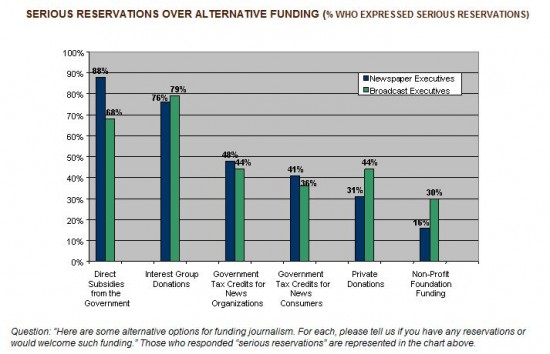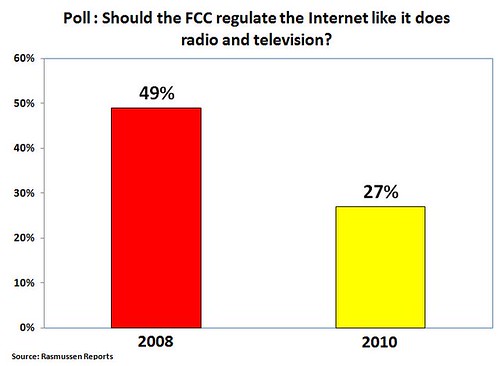I sometimes enjoy picking nits with or lampooning our friend Scott Cleland, but today write to point out what an excellent job he did of advocating against net neutrality regulation last week on the NewsHour.
The set-up piece is interesting because of its government-centric take. Net neutrality, it says, is “a set of principles adopted by the Federal Communications Commission in 2005 that limits the ability of Internet providers to treat sites differently.”
The better view, I think, is that neutrality is one of “a set of technical principles that have been implicit in [the Internet’s] design since it began life.” Hey, NewsHour, giving the FCC credit for the neutral engineering of the Internet is like giving the rooster credit for the sunrise.
There’s a telling omission in the NewsHour’s telling of the Comcast Kerfuffle. See if you catch it:
The case began with actions by Comcast in 2007 to interfere with an online service called BitTorrent, a file-swapping site that allows consumers to swap movies and other material over the Internet, files that use a great deal of bandwidth. The FCC then told Comcast it could not block subscribers from using BitTorrent under the commission’s net neutrality rules.
Left out: Comcast had ceased interfering with BitTorrent before the FCC acted due to a variety of market pressures.
But take a look at the piece and Scott’s good advocacy in the discussion that follows the set-up:
Gigi Sohn, who I personally respect and who I agree with on many issues, reaches a bit far when she argues that Comcast degraded BitTorrent because it was a file-sharing site “unpopular with some folks in Congress and some folks elsewhere.” Collapsing net neutrality regulation and intellectual property issues may be good for Public Knowledge’s base, but it confuses many issues and weakens Public Knowledge’s arguments and support.
I think the record is pretty clear that Comcast degraded BitTorrent because of a conflict between the BitTorrent protocol and the DOCSIS protocol running on Comcast’s cable plant. (I know I can rely on comments to correct me or bring nuance to this claim.)
Neutrality was not a gift from government, and I don’t think making a mandate of a good engineering principle will improve the functioning of the Internet or the Internet ecosystem.




 The Technology Liberation Front is the tech policy blog dedicated to keeping politicians' hands off the 'net and everything else related to technology.
The Technology Liberation Front is the tech policy blog dedicated to keeping politicians' hands off the 'net and everything else related to technology.